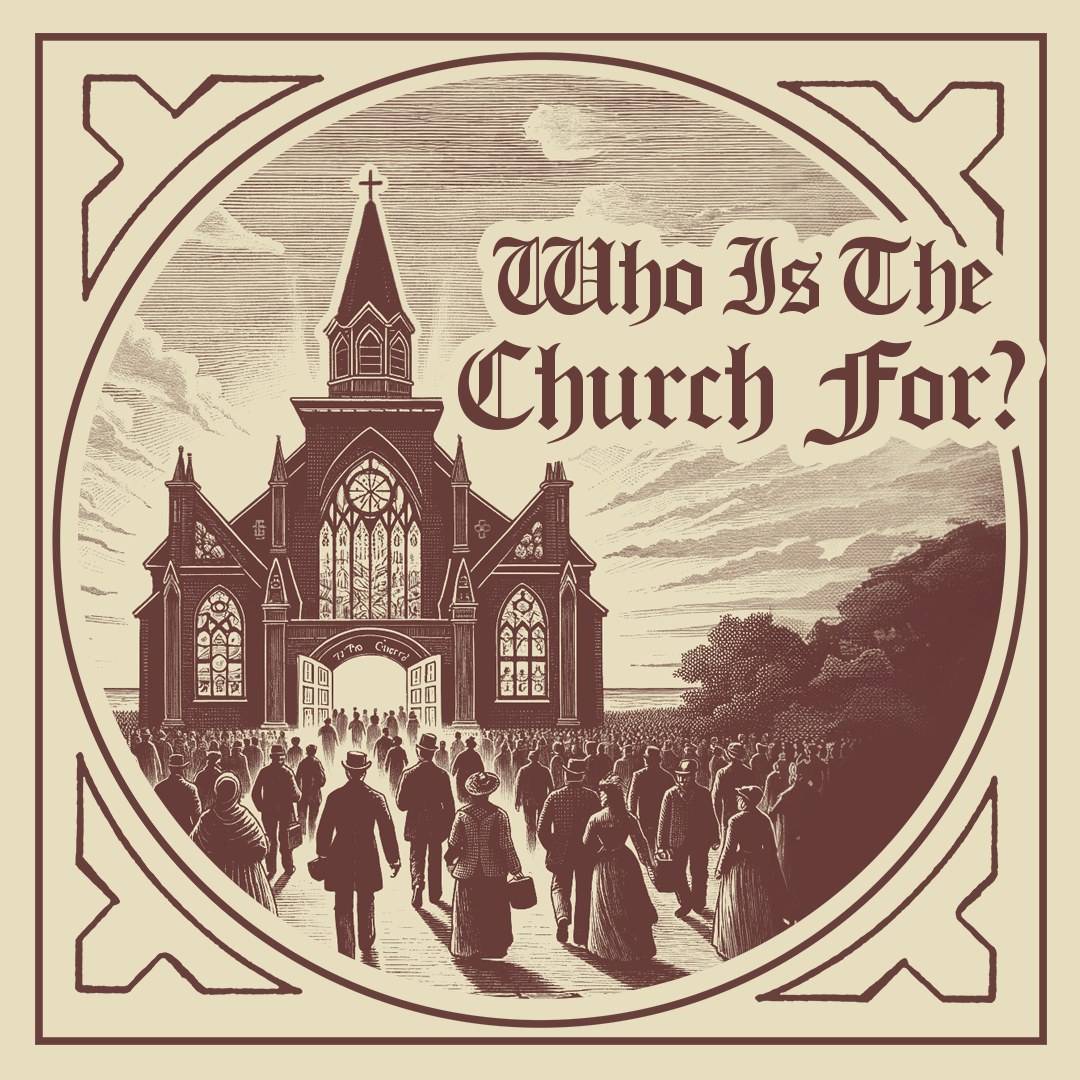
Who Is The Church For?
Moving to Ada, a town of nearly 17,000, I didn’t dream of building a megachurch. My strategy was straightforward: focus on the people in front of us, care for them, and let God manage the growth. Now, every pastor wants the believers in their church to thrive in their faith because healthy Christians by nature repel darkness and plunder hell. Hence, while not all pastors seek large congregations, they all wish for growing ones to fulfill the Great Commission of making disciples.
Yet, even noble aspirations can be pursued inappropriately. Take, for example, sexual intimacy—a natural and divine desire intended to be fulfilled within marriage. Pursuing this godly desire outside of marriage actually distorts and destroys its intended design. Similarly, church growth must follow the right path to retain its goodness. This isn’t to equate misguided church growth strategies with the sin of adultery. It’s merely to highlight that even worthy goals can be sought incorrectly.
When it comes to church growth, there are two main philosophies. The first strategy focuses every service on the non-believer. Sermons, worship, and prayers are designed to lead the unchurched towards a decision for Christ. The second strategy centers services on the believer, with sermons, worship, and prayers aimed at edifying, educating, and uplifting the faithful. Here, the church expands as mature believers act as salt and light in their daily environments, contrasting with the first approach’s emphasis on numerical growth through new conversions.
Both perspectives stem from pure motives and genuine hearts. Evangelistically inclined churches are driven by the eternal stakes at hand, while pastorally focused congregations are mindful of their responsibility to disciple the members God has entrusted to them. Each is underpinned by a love for God and neighbor. Yet, given the dichotomy of the debate, only one perspective can ultimately be deemed “correct.” So, which path is the right one? Who should the church primarily aim to serve: believers or non-believers?
I believe that the scriptures are abundantly clear on this issue. The church’s primary role is for the believer. The collective emphasis of the scriptures directs the church to nurture the faith, fellowship, and readiness of believers. Ephesians 4:12 highlights the church’s mission to equip the saints for the work of ministry and building up the body of Christ. Acts 2:42 serves as a testament to the early church’s commitment to apostolic teaching, fellowship, communion, and prayer. Lastly, 1 Peter 2:5 describes believers as “living stones” being built into a spiritual house, emphasizing the collective spiritual growth and worship within the church community. These passages collectively presuppose Christians as the primary audience of the church.
This is not to say that non-believers should not be present in our services. Even the Apostle Paul expects unbelievers to be present in the gathering of saints (1 Corinthians 14:23). So, if there are a plethora of commands instructing us to focus on developing the saints, and we know that unbelievers are present, how do discipleship-focused churches care for the unbelievers in our midst?
The answer is simple: we preach Law and Gospel. The Law of God is the perfect standard for all mankind. The Law is good, beautiful, and faultless as it points us to the perfect moral standard. Thus, the Law exposes the sinfulness of both saint and sinner, causing them both to look outside of themselves for forgiveness and life everlasting. The Gospel (or Good News) is that the Law of God has been perfectly fulfilled in Jesus. Those who place faith in Jesus receive his spotless record. Thus, the preaching of God’s word to God’s people instills thankfulness, worship, and obedience, while the unbeliever stands in condemnation for their sins. Though the unbeliever is welcomed and wanted, we must acknowledge that our mission is not to make them “comfortable.”
As we consider the essence of our mission in Ada, it’s paramount to remember the church’s primary calling to serve and nurture believers. This foundation guides our approach to worship, teaching, and community, emphasizing the growth and edification of the faithful. By prioritizing the spiritual well-being of our congregation, we ensure that believers mature into the witnesses that God has called us to be. Simultaneously, teaching the Law of God extends the ministry of repentance to all who encounter the church’s message, revealing the need for grace and the beauty of redemption found in Jesus Christ. This deliberate focus doesn’t close our doors to non-believers; instead, it shows the unbeliever all they could be in Christ if they turned from their sins and gave themselves to Jesus.
Visit our home page: https://kingsfellowshipchurch.com/
See more about our city: https://adaok.com/
